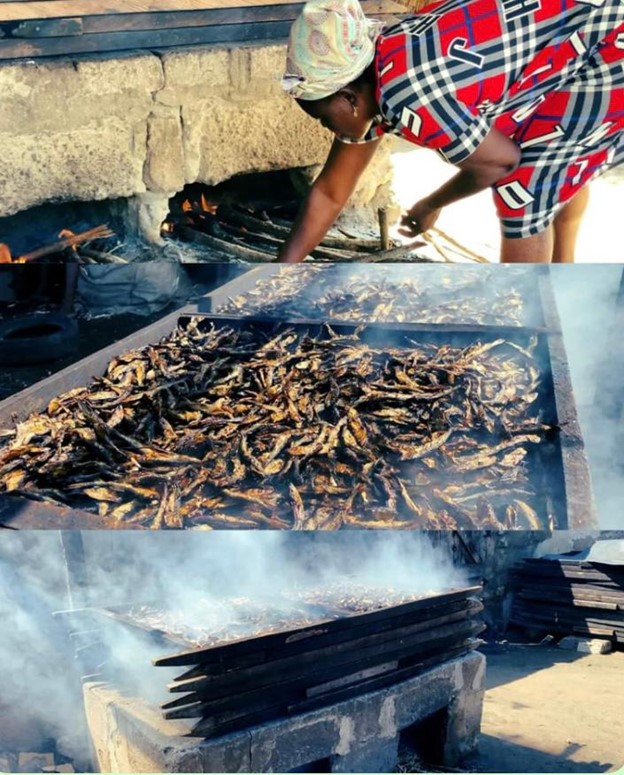… women driving the fishing industry
By Shine Nutepe ATTIPOE
Keta is a small fishing town located on the coast of Ghana. Overshadowed by its neighboring towns, Keta’s vibrant streets and bustling markets hide a significant economic backbone of the community – the women in the fishing industry.
For centuries, fishing has been a way of life in Keta. The town’s proximity to the Atlantic Ocean makes it an ideal location for fishermen to cast their nets and haul in a bountiful catch. However, what often goes unnoticed is the pivotal role women play in this male-dominated industry.
Traditionally, fishing has been regarded as a man’s job, with women playing a supporting role in the background. But in Keta, women have broken out of this stereotype and established themselves as integral pillars of the industry. They are actively involved in every step of the fishing process – from mending nets and baiting hooks to processing and selling the catch.
One of the most prominent roles of women in the fishing industry is fish processing. After the fishermen return from their trips, the women take charge of cleaning, cutting, and smoking or drying the fish. These processes require skills and expertise, ensuring that the fish are properly prepared for consumption. The women’s contributions in this aspect not only add value to the catch but also generate income for the community.
Moreover, the women play a crucial role in the marketing and distribution of the fish. They can be seen in the vibrant markets of Keta, skillfully negotiating with buyers and ensuring that their goods are sold at fair prices. This benefits the women themselves and supports the local economy.
Aside from their economic contributions, the women in the fishing industry are also strong pillars of support for their families and the community. In a profession that requires long and perilous journeys at sea, these women are the backbone of their households, managing the household finances and caring for their children in their husbands’ absence.
Furthermore, the women in Keta have proven to be innovative and enterprising. Many have formed cooperatives and associations to support each other and strengthen their position in the industry. They have also embraced modern smoking methods to preserve their catch and reduce post-harvest losses.
The remarkable resilience and determination of the women in Keta’s fishing industry have not gone unnoticed. In recent years, efforts to empower and support these women have increased. Organisations like the Ghana Fisheries Recovery Activity Programme (GFRA) have partnered with the local government to provide training to women in the fishing industry, enabling them to improve their skills and expand their businesses.
In conclusion, the women in the fishing industry in Keta are more than just supporting characters – they are the backbone of the community’s economic stability. Their dedication, hard work, and determination have not only sustained their families but also contributed significantly to the growth of the town. It is high time their significant role and contributions are recognised and celebrated, not just in Keta but around the world.










